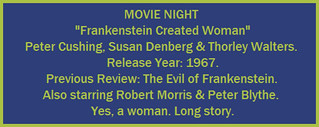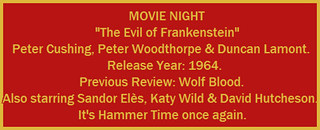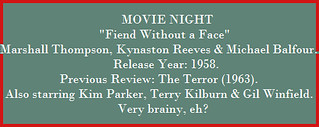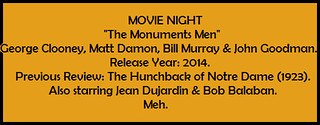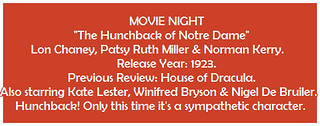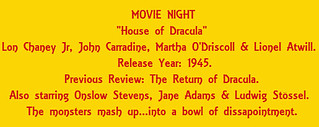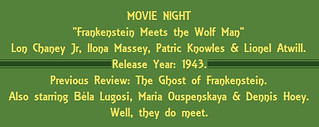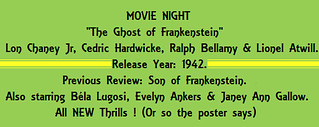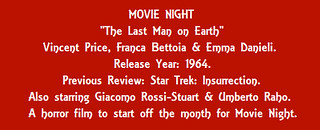
Review #862: Incubus.
Cast:
William Shatner (Marc), Allyson Ames (Kia), Eloise Hardt (Amael), Robert Fortier (Olin), Ann Atmar (Arndis), and Milos Milos (Incubus) Directed by Leslie Stevens.
Review:
Before the review, I will provide a bit of background to this movie in the following paragraph. If you'd want, move on to the next paragraph, which contains the review.
Incubus (Inkubo) was released 50 years ago on October 26, 1966 at the San Francisco Film Festival, with a bunch of enthusiasts of the Esperanto language there. This was directed by Leslie Stevens, creator of the original "The Outer Limits", which had been cancelled prior to this film, with Dominic Frontiere (composer of the first season of the show) contributing the music for this film. Conrad Hall (winner of three Oscars) did the cinematography, in his first credited contribution. This is the second film released in the language (the first being Angoroj in 1964), which had been created in 1887 by L. L. Zamenhof. The language is popular among parts around the world, but apparently not enough in a concentrated area. As for the pronunciation of the language in the film, supposedly the Esperanto enthusiasts were laughing at the way the actors (who rehearsed for less than two weeks in phonetic training of their lines) spoke the lines. The film, while not popular in the United States, was somewhat popular in France. The film was thought to be lost for 30 years due to a fire. However, one copy was found in France (with subtitles on the bottom), and the film was restored and is now available after all these years. It should be noted that one of the actors (Milos) killed himself before the film's release, Stevens' company went bankrupt not long after, Hardt's daughter was kidnapped and killed two years later, and Atmar died the same month of this film's release. By the time of its release, Shatner had already started his run on Star Trek. On this Halloween, it only seems fitting to review this movie, with the legacy that it has.
Now then, with all that history, how is the movie? I can't really judge their pronunciations of Esperanto (I had never even heard the language spoken prior to this film), so the best way to judge the acting is to see how they interact with the movie around them. I should note that Shatner doesn't show up until around 15 minutes in, with the film focusing on the succubi and darkness around a village. The scene where Ames kills one of these travelers in the water is pretty interesting, in part due to the camera work. When it comes to uniqueness, this one may take the cake, with one scene showing a priest sucking an egg while carrying a frog (knock yourself out trying to interpret that). This is the kind of movie that one might show to some friends late at night, or at an art house to try and figure it out. The music by Dominic Frontiere is also quite interesting, adding to the film's mystique. It isn't really a boring movie, just one with some sort of controlled vision that tries to stand out in being something eerie and different without being too pretentious. The film lasts just under 80 minutes, which is somewhat a positive in that it can't really droll too long. The camera shots range from closeups to superimposing shots, all of which are interesting in their own right. This is the kind of movie that could almost be enacted on the stage, for better or worse. Shatner is fairly engaging (as one would expect), with enough interesting moments of him speaking dialogue as interesting as it gets. He certainly has some chemistry with Ames. She is pretty interesting to watch as well. Hardt is also adequate, with a better presence than Milos does. The climax is one to behold, as Ames faces off against the Incubus...who has turned into a goat. It's so strange seeing this fight as it cuts between a real goat and a goat head pushing against her a few times, with one shot of the goat licking itself. It's not a great seminal work, but it is a film with a certain kind of vision that works in the ways that it wants. There is a certain intriguing nature to this movie that not a lot of films can bring within its eeriness. This is the kind of film that you should at least check out for curiosity's sake, or for Shatner, at least. Happy Halloween.
Overall, I give it 7 out of 10 stars.


.png)


